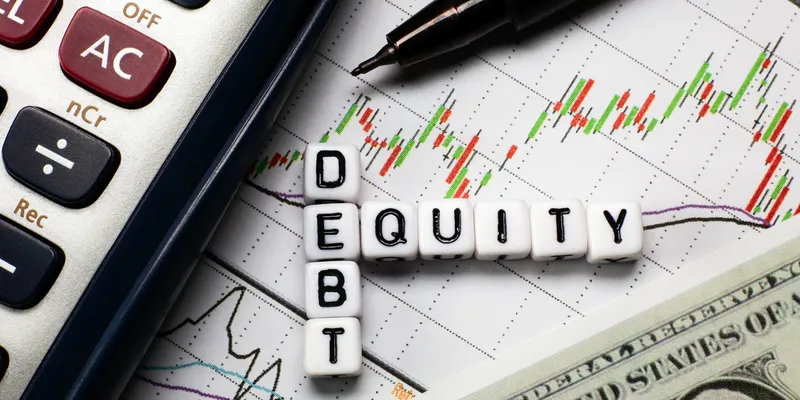Five investment strategies to implement in the current market scenario
While central banks are doing their best to ease the perils of inflation, the situation is most likely to remain negative for the entire 2023.
“The world is expected to get hit by a recession.” You probably must have heard this all over the news for the past few months. Various economists and finance experts have expressed their concern regarding this global economic cold wave. While central banks are doing their best to ease the perils of inflation, the situation is most likely to remain negative for the entire 2023. So, among this chaos, how will the current market scenario affect investors' approach from now on?
Let us go through the five important investment strategies you can implement during the current economic slowdown.
1) Maintain asset allocation as per your risk profile
Asset allocation is a method of diversifying your investments across different asset classes instead of placing the entire concentration of your portfolio in a single channel. It is done to balance your investments by dividing them and reducing the impact of risk on your portfolio. The popular asset classes are equity, debt, cash and cash equivalents, gold or commodities, and alternate assets. Conduct a thorough research before investing in these asset classes to ensure that you have diversified them in the right proportion.
As per the current market condition, many investment avenues are expected to face volatility. So, amidst the threat of a global economic slowdown, if you invest all your funds into only one type of asset, the entire amount will be subject to the market risk of that particular asset. Nevertheless, if you invest in a collection of assets and any one of these investments underperforms, the loss will get balanced out by the remaining better-performing or profiting assets. This shows that your portfolio may have the potential to sustain volatility with the appropriate diversification.
You can also consider passive investment options like index funds and ETFs, both of which mirror the stock market indices. SEBI regulates ETFs, and by investing in a broad range of instruments such as stocks, bonds, and other securities, they diversify the risk.

Image: Shutterstock
2) Switch from equity to debt
Another strategy that you could adopt to face the market during a recession is switching from equity to debt. Let us understand this by discussing the bigger picture. Due to the global problem of raging inflation, central banks across the globe have been aggressively increasing their repo rates to get the situation under control. India’s repo rate currently stands at 6.25%. Yet, the chances of facing a global recession remain high as multiple economic factors play a part in this situation.
One of the major negative impacts of this rate hike is that it causes a drop in the equity markets. On the other hand, as debt mutual funds are less volatile in comparison to equity funds, they offer a better rate of return. Thus becoming more favourable for investors during a market slowdown, especially for risk-averse investors.
3) Invest in small cap stocks for long-term wealth creation
During a recession, since the value of shares experiences a dip, investors get the chance to invest in small cap stocks through a mutual fund at a lower price. Small cap mutual funds invest 65% of their assets in the equity shares of small-cap companies. They offer great returns and are more volatile in comparison to large cap and mid cap stocks.
During an ongoing recession, investors prefer the buy-and-hold strategy. This is because, as the value of stocks declines, you get the chance to purchase quality stocks at lower and more affordable rates than the price you would have had to pay before this situation. However, this will not work for short-term investors.
4) Stay invested for the long-term
Even though a recession might give you the benefit of purchasing your desired stocks at a lower price, your end goal is to reap maximum benefits out of it. So, you will have to wait for the value of your investments to bounce back once the economy starts to recover. Therefore, to generate sufficient returns, you will have to hold your investments for a longer period of time. Keep in mind that you need to scrutinise the market before selecting an appropriate investment avenue as per your risk profile and the market condition, especially when the economy is facing cold winds.
Considering the ongoing condition, as it is suggested to invest for the long term, you should note that you will be taxed on your long-term capital gains (Funds held for more than 12 months) at 10% with an exemption of Rs 1 lakh.
5) Consistency and patience
While making an investment, you can either invest your money in lumpsum or at fixed intervals. It is crucial to stay persistent, especially if you choose the latter. Try to stay on track by being regular with your investments.
Along with consistency, you also need to be patient. It could be difficult for you to decide where to invest during a turbulent market situation. It could take you some time to analyse the pros and cons before deciding on a long-term plan. Speaking of long-term plans, only decide on one after sufficient research and inspection and make sure to stick to that plan. Your investments might most likely underperform as per the current global economic conditions. In such times, it would be advised that you shouldn’t panic. Waiting for the economy to get back in its shape may take a while, and it will require an immense amount of patience on your behalf. So, the bottom line is that if you are looking forward to investing in the current scenario, consider patience and consistency as your key elements.
Conclusion
By referring to these guidelines, you can plan your next investment move accordingly. Bear in mind that there is no rule book for the ideal way to invest your funds, especially when the threat of a global recession continues to linger. While there are many economic factors that have dragged the market to its downfall, there are also many personal factors in your life that dictate your financial choices. Be it your risk profile, current income, existing savings, number of dependents, your goals, standard of living, etc. This is why each one’s investing style is unique.
However, if you want to feel more confident to invest under such circumstances, make sure you have a proper emergency fund in place before you begin investing. Additionally, refrain from borrowing money for the sole purpose of investing, especially during such market conditions, and avoid withdrawing money from your investments halfway through achieving your financial goals.
Stay vigilant for the right opportunities and consult a finance expert to help you clear your investment queries with reliable help and assistance.
Edited by Megha Reddy
(Disclaimer: The views and opinions expressed in this article are those of the author and do not necessarily reflect the views of YourStory.)







